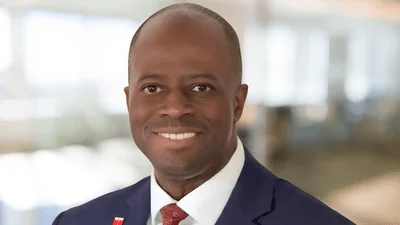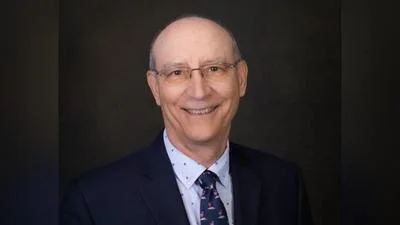Candidate for Ill. Senate, Dale Fowler. | Courtesy of Dale Fowler
Candidate for Ill. Senate, Dale Fowler. | Courtesy of Dale Fowler
Harrisburg Mayor Dale Fowler, who is running for state Senate in District 59, says voters are worried about their state.
They are concerned about the budget, the political standoffs and education funding. They are concerned about their future.
“Term limits is one of the first things people say,” Fowler said. “They talk about the budget. A lot of people seem to be upset about the $7.5 billion being proposed (by House Speaker Michael Madigan). They just don’t understand how it could even be a proposed option. As each day goes by, communities — especially in my district — are more and more concerned about the education funding; about schools opening in August."
Education funding has long been a topic of contention in the capital. All parties believe in education, but not everyone agrees on how to fund it. Recently, Gov. Bruce Rauner vetoed a bill that would have allocated $3.9 billion to education funding and human services. His veto has, not surprisingly, caused debate. Rauner said the bill was developed on "unfunded, empty promises," elaborating that the bill appropriated money without a source for funding. Many have chastised the governor.
Fowler asserted that the governor is in a precarious situation because the state has no money.
“It’s a very difficult situation because of not only a bill such as that, but some of the other bills that have been proposed," he said. "The money is not there. If you don’t have a budget, then how can you fund it?"
Fowler related Rauner’s situation to the Hardin County Work Camp, which closed down last year to the chagrin of many in the district, including Fowler.
“I’ve always been a strong voice and an advocate to not close the Hardin County Work Camp, and I would love to see it reopen,” he said. “And there has been a bill to reopen the Hardin County Work Camp; but if they don’t have a budget within that budget, then how can you do it? So it all circles back around to needing a budget. It’s going to take a while to get things straightened out. It’s not going to happen overnight even with a balanced budget.”
Balancing the budget is the key in resolving many of Illinois’ financial problems, Fowler said. In fact, he noted that it is a constitutional requirement for a state to pass a balanced budget.
“It all begins with a balanced budget," he said. "We are obligated to have a balanced budget. We haven’t had one in years. It’s embarrassing. I keep using the words 'embarrassing' and 'appalling,' and it is. The leadership has been allowed and gotten away with this over the years.”
Another embarrassment that haunts the state is its relationship with businesses. Fowler said he believes that the Capitol has been ignoring businesses.
“As I have been out in the district talking to businesses — businesses that are having to eliminate jobs, businesses that are closing their doors or considering closing their doors, businesses that are considering leaving the state of Illinois — where is the fight for that within our leadership?” he asked. "Where’s the fight?"
An example of Illinois’ struggling relationship with businesses is when Fowler toured a major company and was shocked at the discoveries.
“I toured a major company yesterday; a major company; a 51-year old company; a multi-million-dollar company that has been around for 51 years,” Fowler said. “They have an opportunity to expand, but because of permits and regulations being stringent in the state of Illinois, they haven’t been able to. One of the questions I asked the owner ‘Has any of your legislators in your district gone to bat for you or visited or toured your operations?’ And they said not a single one.”
Fowler said he is shocked that businesses both big and small are not getting representation or the help they need. He explained that while some argue that Illinois cannot be run like a business, there are many areas in which a business-like mentality or perspective will greatly benefit the state.
“It’s plain and simple,” Fowler said. “You don’t spend what you don’t have. You go out and try to grow. If you have a business, especially a small business, if you are not out there trying to grow your base and bring in more people so you can create more jobs, if you are not out there trying to expand, then you are going to be sucked up by inflation and cost of living. You’re going to get run out of business. And that’s what happened in the last decade because we don’t have anybody fighting for business.”
Fowler compared the economic and social crisis Illinois faces to that of a burning house.
“It’s like this analogy…if your house catches on fire and you go to a business person and you ask ‘what should I do?' ’’ he asked. “That business person is going to say ‘First thing you do is you save the people. Secondly, you put out the fire. Thirdly, you find out what caused the fire and you do everything humanly possible to ensure that it doesn’t happen again. Lastly, you rebuild bigger and better than before.' You ask a politician what you should do, and they are going to point their fingers and say ‘I didn’t start the fire, they did.’”
His point: save the people. Save them from leaving. Help them, Fowler insisted.
"The whole perspective of this is that the first thing we have to do is save our people,” he said. “We have to save our people from having to leave the state of Illinois when they don’t want to. It’s not easy to pack and leave. First of all, they are losing their jobs, and they have to sell their homes. Well, that is not easy. Then they have to go and try to find another job, and then they have to relocate their family. It’s not easy. And that’s what is killing our economy because a lot of the people that need to leave and are dying to leave are having a hard time leaving because of the economy.”
Save the people, then you save the state. You work it out and rebuild, Fowler said.
“We have to save our people, and then we have to find out what has caused this," he said. "Then we have to change it; rebuild. And most importantly, we have to ensure that this never happens again; that we never ever get back in this situation again”





 Alerts Sign-up
Alerts Sign-up